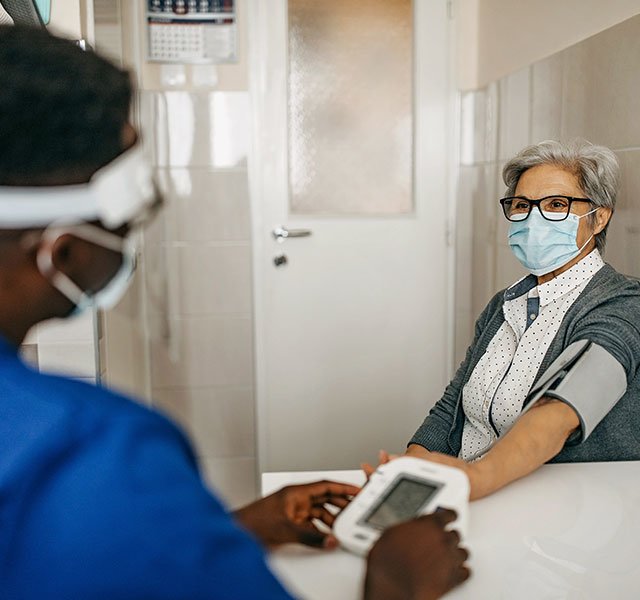Providing your doctors with a clear picture of your health can help them better understand you and determine the best course of action. Unfortunately, it's not uncommon for patients to forget their concerns or even fudge the truth when talking to their doctors.
"It's human nature to forget things," says Jennifer Burgess, D.O., a primary care physician at Henry Ford Health. “But if you only see your doctor once or twice a year, it's important to take notes and shore up your courage so your doctor can provide the best care.”
Why Patients Shouldn't Fudge The Truth
When you sit down with your doctor for the first time in several months, or even years, discussing your weirdest symptoms and most embarrassing challenges can be tough. Yet, it’s critical to tackle problems before they spin out of control.
"As doctors, we have heard it all and seen it all," Burgess says. "Your visit is a judgement-free zone."
While talking about sensitive topics can be uncomfortable, suffering in silence is far worse. Plus, having the talk is like ripping off a Band-aid, but living with debilitating symptoms can last for days, weeks or even decades.
Frequently Avoided or Fibbed About Topics
Patients are less likely to lie about how many servings of fruits and vegetables they eat daily than they are to omit concerns about their sexuality. But no matter what you're discussing with your doctor, it's important to be 100% honest and thorough.
Here are the most commonly unaddressed (or under-addressed) issues, and why your doctor needs to hear about them:
- Substance use. Patients don't always inform their doctors about which substances they're using. They might not tell their doctor they smoke, use e-cigarettes or feel like they're addicted to pain medication.
Why your doc needs to know: Many substances are highly addictive, and they can wreak havoc on your health and relationships. "They may also interfere with the prescriptions we want to give," Burgess says.
- Alcohol consumption. When you talk to your doctor about alcohol consumption, be specific. For example, social drinking can mean different things to different people. "One person might view social drinking as two to three drinks every evening, while another describes social drinking as having a glass of wine a few times each year at weddings and other celebrations," Burgess says.
Why your doc needs to know: Alcohol consumption not only affects liver function and could raise or drop your risk profile for certain conditions, it can also interact with medications you're taking.
- Sexual challenges. Sexual issues are remarkably common — and they're nothing to be embarrassed about. Unfortunately, talking about sex still feels taboo in our society. "Sex is part of life," Burgess says. "It's something both partners should be able to enjoy."
Why your doc needs to know: Most sexual challenges are treatable. Plus, sexual dysfunction isn't only a physical issue. "It's a quality-of-life issue that affects your mental health and relationships, too," Burgess says.
- Mood disorders. It's not uncommon for patients to have trouble discussing their mental health and well-being. The good news: "People are getting more comfortable talking about depression and anxiety, particularly during the pandemic," Burgess says. "Doctors are much more proactive about screening for mood disorders, too."
Why your doc needs to know: Some primary care doctors treat mood disorders like anxiety and depression. But if they don't, they can refer you to the best experts.
- Supplements. Your doctor needs to know what you're putting into your body — both the substances that are designed to improve your health and those that could be harmful.
Why your doc needs to know: Like alcohol, supplements (vitamins, minerals or herbal concoctions) can impact liver enzymes and interact with medications. Plus, supplementing with one nutrient could create a deficiency in another. Work with your doctor to determine the right nutrient mix for your unique needs.
Get Comfortable Talking To Your Doctor
If you're uncomfortable addressing certain topics with your doctor, you're not alone. The things you're most embarrassed about are often the same things you most need to address. The best approach is to tell your doctor you're nervous.
Still struggling? "Consider sending your questions through the online patient portal, so there’s a screen between you and your doctor," Burgess says. No matter what your health dilemma or concern, chances are good your doctor can provide assistance or point you in the right direction.
Learning to disclose your lifestyle habits and ask questions about your health concerns is the first step toward healing. If you don’t connect with your doctor, or if you don't feel comfortable talking to him or her about sensitive issues, it may be time to search for a new provider.
To find a doctor at Henry Ford, visit henryford.com or call 1-800-HENRYFORD (436-7936).
Dr. Jennifer Burgess is a family medicine doctor seeing patients at Henry Ford Medical Center in Commerce Township and West Bloomfield.



